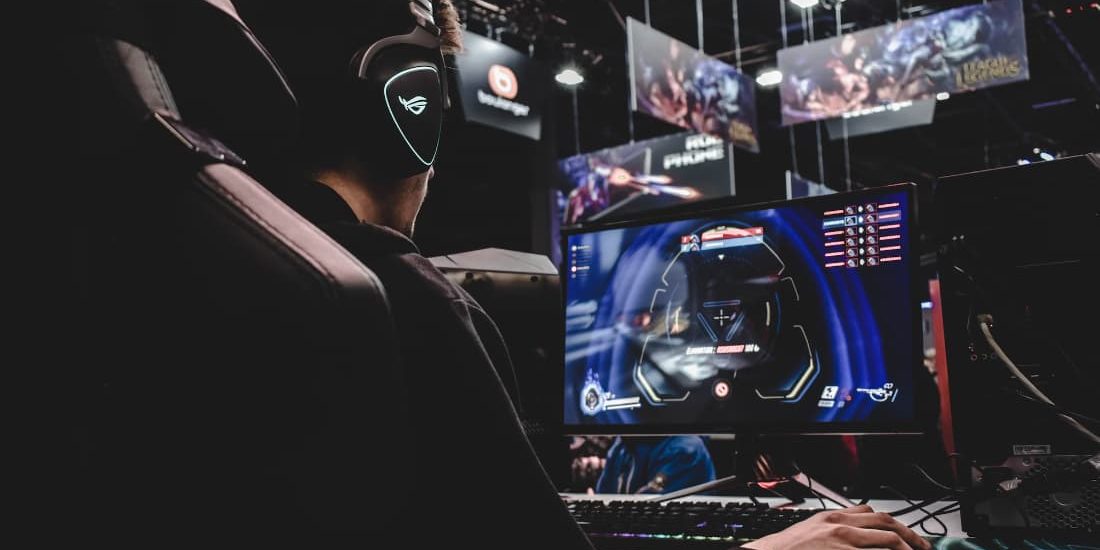In the vibrant realm of eSports, “How Pro Gamers Deal with Online Threats” has become a pivotal topic, transcending the mere strategy of digital games into a crucial safeguarding practice.
Pro gamers, amid their virtual conquests, concurrently combat myriad online threats, navigating through challenges like swatting, doxxing, and malware with adept digital defense strategies.
How Pro Gamers Deal with Online Threats?

This post will delve into the subtle, yet imperative world of online security in gaming, revealing the essential tools and practices that shield our cyber athletes from potentially game-halting and life-altering virtual dangers.
Unlocking Pro Gamers’ Top Picks: Most Effective Cybersecurity Methods:
Since they’re juicier targets than regular gamers, most pros realize how vital strong cybersecurity is to their career. They regularly use the following tools, and so should you.
-
Use a VPN from a Trusted Brand
A Virtual Private Network is the go-to tool for a more controlled and hassle-free gaming experience. It creates encrypted connections that route traffic ordinarily handled by the ISP through servers in different world locations.
The encryption aspect means any communication between a gamer and their online destination gets scrambled. That stumps hackers since they won’t understand what they’re dealing with even if they intercept any data the user sends.
Connecting through a VPN lets the pros switch their real IP address with one coming from anywhere else in the world. That helps maintain their anonymity and makes doxing attempts much harder, protecting them from such threats.
Using VPNs might also give some pros a competitive edge. The VPN may take a different, more direct route to a game server than an unprotected connection than an ISP would. While this is situational, a VPN suitable for gaming can lower ping and make someone more competitive. As any pro can vouch for, a split-second advantage is sometimes all it takes.
-
Always Use Two-Factor Authentication
Their account is a pro gamer’s most prized possession, so taking steps to make it as secure as possible is necessary. Using a long and complex password is an excellent first step. However, some phishing scams may copy a game’s login page and harvest passwords even if they are kept safe.
2FA saves accounts from disaster by adding an extra step to the login process. Some 2FAs send text messages to the owner’s phone, while others use constantly updating authentication codes. Either way, a cyber crook would need access to both to breach the account.
-
Be Aware of Firewalls and Antimalware
Godlike gamers are people, too. In the cybersecurity context, that means they’re not immune to clicking on fishy links and downloading malware. Firewalls prevent external attacks, while antimalware identifies and quarantines threats before they can become active on a computer.
Digital Dangers Unveiled: Common Cyber Threats in the Pro Gaming World
The surge in e-sports popularity also propelled the best players to superstardom. Couple that with an online presence being essential for their work, and you’ve got a potential cybersecurity nightmare. Here’s the worst of it.
-
Harassment
Harassment encompasses anything from rude comments disgruntled fans leave after a bad match to genuine death threats. There’s no sense in engaging with such people and validating their views, so most pros don’t bother. They should, and do, contact the authorities if the more serious threats prove credible.
-
Hacking
A world-class gaming account is worth a lot on many levels. The name the pro goes by encompasses their achievements, sponsorships, and social media presence. Hacking one or multiple accounts gives attackers access to their private data or lets them manipulate fans into donating to fake causes.
-
Doxxing
Even if you’re a hardcore fan, how many CS: GO or Dota2 legends do you know by their legal name? Gamer tags are a tool for anonymity and fame alike, but they can’t protect players from determined bad actors.
They’ll dig up everything there is to know about their target. This can include their real name, address, and even more sensitive information like their financials or details from their personal lives.
Doxxing opens the way to more severe forms of harassment, like stalking or invading the victim’s privacy.
-
Swatting
Swatting is among the most unsettling experiences a doxed pro can go through. It involves someone calling the cops on them, alleging a bomb threat or hostage situation is in progress at the gamer’s home. Police take such reports seriously and usually show up in full force. Establishing the facts takes a while, and such raids sometimes even end with injuries or casualties.
-
DDoS Attacks
Some cyberthreats target the pros indirectly but can still hurt. DDoS or Distributed Denial of Service attacks happen when a site or server gets hit with too many connection requests to process. That may lead to a pro’s homepage going down. It can also target the server they game on, slowing them down or making play impossible until the attack ends.
-
Spear Phishing
E-sports pros are public personas, meaning there’s a lot of info on them out there. Savvy crooks can use it to put together convincing emails or messages in an attempt to get at the victim’s resources.
They could pose as a rival clan offering a better deal or impersonate a well-known sponsor interested in reaching out. If they don’t do the research, filling out the information such messages usually request can leave the victims high & dry.
More Related Guides:
- Does Lower Resolution Increase FPS in Games
- Do You Get Aim Assist with Controller on PC
- Founders Edition Vs Normal GPUs – Are Founders Edition Cards Better?
- How Many Games Can 1TB Hold
- Why does steam update every day



